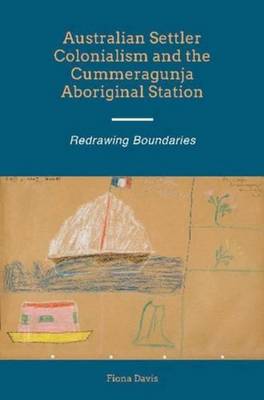
Bedankt voor het vertrouwen het afgelopen jaar! Om jou te bedanken bieden we GRATIS verzending (in België) aan op alles gedurende de hele maand januari.
- Afhalen na 1 uur in een winkel met voorraad
- In januari gratis thuislevering in België
- Ruim aanbod met 7 miljoen producten
Bedankt voor het vertrouwen het afgelopen jaar! Om jou te bedanken bieden we GRATIS verzending (in België) aan op alles gedurende de hele maand januari.
- Afhalen na 1 uur in een winkel met voorraad
- In januari gratis thuislevering in België
- Ruim aanbod met 7 miljoen producten
Zoeken
€ 34,95
+ 69 punten
Omschrijving
In 1938, the anthropologist Norman Tindale gave a classroom of young Aboriginal children a set of crayons and asked them to draw. The children, residents of the government-run Aboriginal station Cummeragunja, mostly drew pictures of aspects of white civilization boats, houses and flowers. What now to make of their artwork? Were the children encouraged or pressured to draw non-Aboriginal scenes, or did they draw freely, appropriating the white culture they now lived within? Did their Aboriginality change the meaning of their art, as they sketched out this ubiquitous colonial imagery? Australian Settler Colonialism and the Cummeragunja Aboriginal Station traces Cummeragunja's history from its establishment in the 1880s to its mass walk-off in 1939 and finally, to the 1960s, when its residents regained greater control over the land. Taking in oral history traditions, the author reveals the competing interests of settler governments, scientific and religious organizations, and nearby settler communities. The nature of these interests has broad and important implications for understanding settler colonial history. This history shows white people set boundaries on Aboriginal behaviour and movement, through direct legislation and the provision of opportunities and acceptance. But Aboriginal people had agency within and, at times, beyond these limits. Aboriginal people appropriated aspects of white culture including the houses, the flowers and the boats that their children drew for Tindale - reshaping them into new tools for Aboriginal society, tools with which to build lives and futures in a changed environment.
Specificaties
Betrokkenen
- Auteur(s):
- Uitgeverij:
Inhoud
- Aantal bladzijden:
- 224
- Taal:
- Engels
- Reeks:
Eigenschappen
- Productcode (EAN):
- 9781845196905
- Verschijningsdatum:
- 1/10/2014
- Uitvoering:
- Paperback
- Formaat:
- Trade paperback (VS)
- Afmetingen:
- 154 mm x 228 mm
- Gewicht:
- 353 g

Alleen bij Standaard Boekhandel
+ 69 punten op je klantenkaart van Standaard Boekhandel
Beoordelingen
We publiceren alleen reviews die voldoen aan de voorwaarden voor reviews. Bekijk onze voorwaarden voor reviews.









